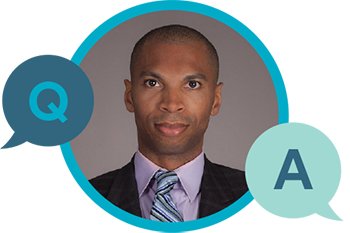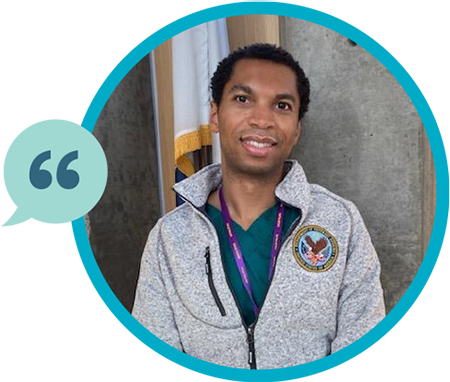
My name is Phil Accooe. I’m originally from New Jersey, but I currently live in Long Beach, California, where I work as a transfusion service laboratory supervisor.
I first developed an interest in biotherapies during my Specialists in Blood Bank (SBB) program at the National Institutes of Health. The options for our individual research project comprised biotherapies, human leukocyte antigens (HLA), or antigen expression on cultured red blood cells. The biotherapies aspect of the field seemed like it had a lot more opportunity for discovery to me at the time, so I chose that for my project.
I first became involved with AABB when I presented my SBB research project (focusing on biotherapies) as an oral abstract during the AABB Annual Meeting.
I wanted a way to distinguish myself from other individuals when pursuing opportunities in the biotherapies field. My Medical Laboratory Scientist (MLS) & SBB credentials don’t reflect my experience manufacturing HPCs and somatic cell therapies. The CABP certification notifies others that I am a subject matter expert in biotherapies.

Before the CABP certification, there was no way to identify qualified individuals who were knowledgeable in biotherapies. We have credentials for other areas within laboratory medicine, but none of them specifically applied to biotherapies. One of the major challenges in the biotherapies field is the lack of qualified workforce. The field of biotherapies is fairly novel and very complex. Hiring an individual is a big investment when you’re not certain whether or not they are fully qualified for the position. The CABP program can help bolster confidence that the appropriate hiring decision is being made.
I think it’s relevant to a lot of professional groups. physicians, nurses, scientists, transplant coordinators, quality assurance professionals, and biotherapy sales/marketing professionals. The list goes on.
I’m excited to start exploring more biotherapy opportunities with my newly acquired credential.

Becoming a CABP is a mark of distinction, establishing that qualified professionals have demonstrated – through a certification exam – that they have the necessary knowledge to credibly practice in the field of biotherapies.